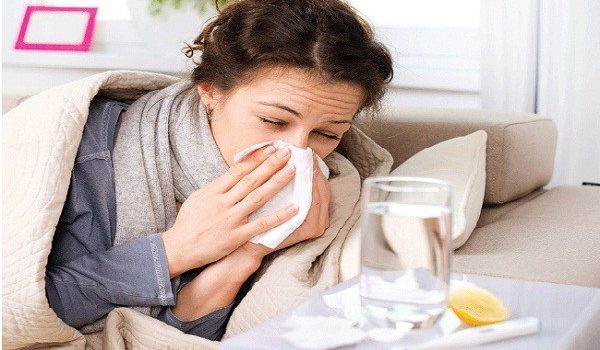The Centers for Disease Control and Prevention (CDC) recommends the following three-point action plan against the flu. Keep in mind that the influenza virus should not be dismissed as just another virus because of its potentially life-threatening complications, such as pneumonia, especially among vulnerable groups including children, elderly people, and people with weakened immune system.
#1 Get Vaccinated
Everybody 6 months old and above should get a yearly flu vaccine since this is the first and most important step toward protection against the flu virus. The yearly recommendation is based on two reasons, namely: first, the flu virus has a high drift, or genetic mutations, that require annual changes in the vaccine composition; and second, the flu vaccine protects against the flu strains that the World Health Organization’s (WHO) research suggest will be in circulation for the upcoming season.
Flu vaccines are widely and readily available in doctor’s clinics, walk-in pharmacies, and hospitals, among other healthcare facilities. Since these are usually covered by insurance under the Affordable Care Act, there should be no reason to skip on it although in case a small fee is required, price comparisons at CVS, Costco, and Walgreens may be necessary.
Young children; people with chronic health issues including diabetes, asthma, and heart or lung disease; people 65 years old and above; and pregnant women are on the priority list for flu vaccination because of their high risks for flu-related complications. Health care workers especially those who care or live with high-risk people should also get vaccinations to lessen the risks of spreading the flu virus to them.
#2 Take Preventive Actions Daily
Even when you have been vaccinated against the flu, you must still take preventive measures every day. This is because the flu vaccine does not offer 100% protection – researchers estimate that it is only 50 to 60 percent effective against the flu virus. But it should also be emphasized that a 50 percent protection is better than zero protection, not to mention that studies have shown that flu vaccinations reduce the risk for life-threatening complications and hospitalizations.
- Make it a habit to wash your hands often with soap and water or an alcohol-based rub to lessen the risks for contracting and spreading the virus.
- Cover your nose and mouth with a tissue when sneezing or coughing. Be sure to throw away the tissue into the trash after each use.
- Avoid touching your nose, mouth and eyes as much as possible since germs can spread in this manner.
- Limit – or better yet, avoid – close contact with people suspected of having the flu.
- Stay at home for at least 24 hours when you have flu-like symptoms to lessen the risks of spreading it.
- Clean and disinfect objects and surfaces that may be contaminated, such as tabletops and doorknobs.
These are all sensible steps that everybody can make. Even children can be taught about these steps, too.
#3 Ask Your Doctor About Antiviral Drugs
In case you get the flu, your doctor may prescribe antiviral drugs to treat your illness. Antiviral drugs are prescription drugs formulated to reduce the duration and severity of the viral infection, thus, reducing the risks for serious flu complications. Indeed, for people at high risk for flu, these drugs can mean the difference between hospitalization for flu complications and a milder illness requiring at-home care methods.
Your doctor will likely prescribe antiviral drugs within 2 days of getting sick with the flu-like symptoms, which can include fever, sore throat, cough, stuffy nose, headache, body aches, chills, and fatigue. You should follow instructions about using antiviral drugs to the letter.
The bottom line: You have a responsibility, too, in reducing the risks for a flu pandemic as a citizen – adopt it!


